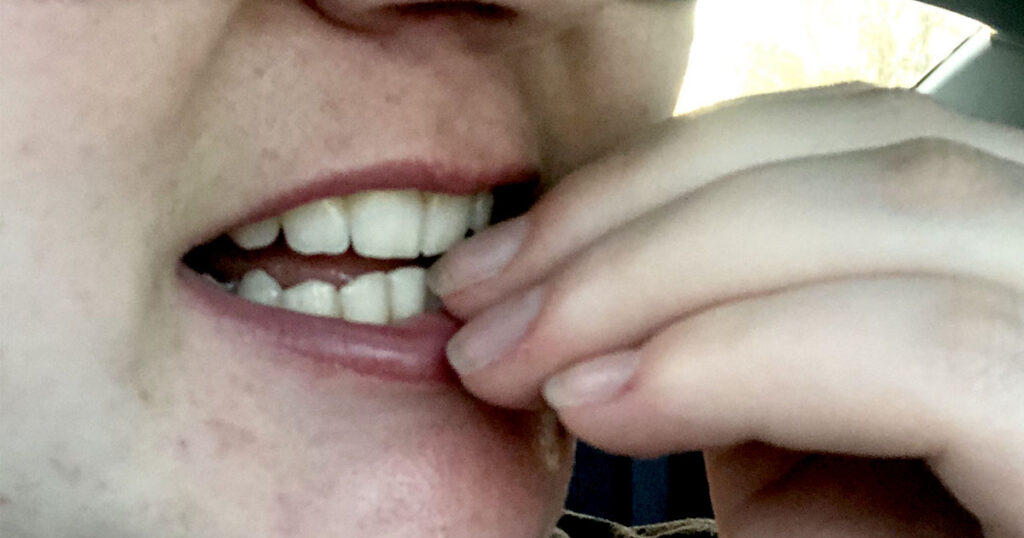Nail biting, also known as onychophagia, is a common habit that affects many people around the world. While it may seem like a harmless behavior, nail biting can have spiritual implications that go beyond just physical consequences. In this article, we will explore the Spiritual meaning of nail-biting, the pros and cons of this habit, and examples of how people believe in its significance.
The Spiritual Meaning of Nail Biting:
From a spiritual perspective, nail biting can be seen as a manifestation of anxiety, stress, or nervousness. It can also represent a need for control or a way of coping with difficult emotions. Some spiritual traditions believe that nail biting can be a sign of spiritual imbalance or blockages, indicating that the person may need to address unresolved emotional issues or deeper spiritual concerns.
On the other hand, some spiritual practices believe that nail biting can be a way of releasing negative energy or emotions. In Chinese medicine, nail biting is associated with the liver meridian, which is
responsible for regulating emotions and releasing tension. According to this belief, nail biting can be a way of releasing blocked energy and restoring balance to the body.

The Pros and Cons of Nail Biting:
Pros :
While nail biting may provide temporary relief or comfort, there are several negative consequences associated with this habit. Consistent nail biting can damage the nail bed and surrounding skin, leading to infections and pain. It can also increase the risk of spreading germs and bacteria, particularly if the person bites their nails in public or around others.
Cons :
In addition to physical consequences, nail biting can also have psychological effects. It can increase feelings of anxiety and stress, particularly if the person is aware of the potential health risks
associated with this habit. It can also lead to feelings of shame or embarrassment, particularly if the person is unable to stop despite their best efforts.
Examples of Belief in the Spiritual Meaning of Nail Biting:
Many spiritual traditions and practices believe in the significance of nail biting, and provide guidance and support for those seeking to overcome this habit. For example, in Ayurvedic medicine, nail biting is associated with the vata dosha, which represents the air element and is responsible for regulating movement and nervous system function. Practitioners of Ayurveda may recommend specific herbs or practices to help balance the vata dosha and reduce the urge to bite nails.
In the Christian tradition, nail biting can be seen as a sign of weakness or lack of self-control. Some believers may turn to prayer or meditation to overcome this habit, seeking guidance and strength from a higher power.
Nail Biting Cause For Health :
Damage to the nail bed, cuticles, and surrounding skin from nail biting can result in infections and pain, among other health problems. In particular, if the person bites their nails in public or among others, it can raise the danger of transferring infections and pathogens. In extreme circumstances, biting one’s nails might potentially permanently harm one’s teeth and gums. In order to address this behaviour and reduce any potential health hazards, it is crucial for people who deal with nail
biting to get support and advice from medical professionals.
In Conclusion,
nail biting is a common habit that can have spiritual implications beyond just physical consequences. While it may provide temporary relief or comfort, nail biting can also increase feelings of anxiety and
stress, and lead to physical and psychological health risks. By exploring the spiritual meaning of nail biting and seeking support from spiritual traditions or practices, individuals can begin to address the
underlying emotional or spiritual imbalances that may be contributing to this habit, and find healthier ways to cope with difficult emotions or situations.
